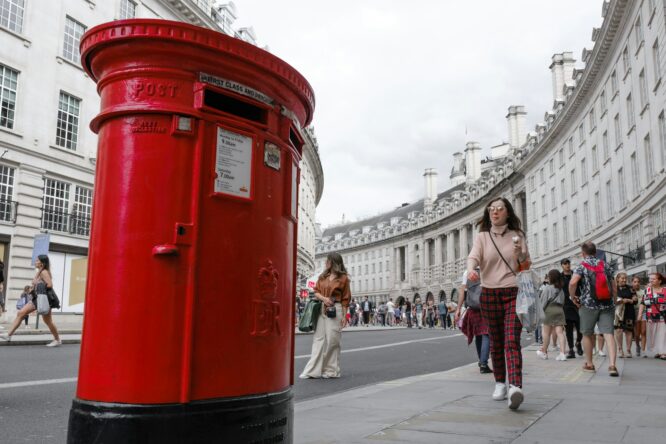There are some things we Brits just know—no one taught us, no one wrote them down, yet somehow, everyone follows the same odd little codes.

To outsiders, especially Americans, these behaviours can seem a bit confusing or, at the very least, unnecessary. However, they just come naturally to us at this point, and we tend to believe that they keep the world operating in the right way. These are some of our most important unspoken rules that our Yankee friends tend to think are a bit weird.
1. Never take the last biscuit without offering it around first.

Even if you desperately want that last chocolate digestive, you’ll feel a wave of guilt unless you do the polite thing: ask everyone else if they’d like it first. Chances are, they’ll decline with an equally polite, “No, you go ahead,” but the ritual still matters. It’s not really about the biscuit; it’s about manners, self-restraint, and avoiding looking greedy. To an American, it might seem like an unnecessary song and dance, but to us, it’s a sacred part of snack etiquette.
2. Say “sorry” when someone else bumps into you.

You could be minding your own business when someone charges into you, yet somehow it’s you apologising. We say sorry almost reflexively, even when we’re clearly not at fault. It’s less about actual guilt and more about smoothing things over. Americans might find this odd, but for us, it’s just a polite way to avoid confrontation or awkwardness in public. This isn’t so much a “rule” as it is a deeply engrained habit that we’ll likely never give up.
3. Form an orderly queue pretty much anywhere other people are also waiting.

Whether it’s at the bus stop, the bar, or even outside a changing room, we believe in the orderliness of a queue. Brits instinctively know who arrived when, and there’s an unspoken rule that jumping the queue is social heresy. Americans, used to a bit more casual “whoever’s ready next” energy, might miss the invisible structure. However, queue etiquette in Britain is serious business, and breaking it is one of the fastest ways to make enemies.
4. Keep personal opinions quiet in public.

Whether it’s politics, religion, or our stance on the latest royal drama, we Brits tend to avoid heated conversations in public spaces. Loudly stating a controversial opinion in a café or on a train? A big no-no. Americans, known for their openness and confidence, might find this odd or even stifling. However, for us, restraint is a form of social grace. It keeps things polite, neutral, and delightfully non-confrontational.
5. Avoid eye contact on public transport at all costs.

The unwritten rule on the Tube, LNER, bus, or any other form of public transportation is pretty clear: look anywhere but at another human. Eye contact with strangers is considered slightly uncomfortable, borderline alarming. While Americans might be more inclined to strike up casual conversation or flash a friendly smile, Brits favour silence, headphones, and staring into the middle distance. It’s not rudeness; it’s self-preservation.
6. Make tea during any emotional moment.

Got bad news? Put the kettle on. Someone’s crying? Make a cuppa. Something stressful happening? Time for tea. It’s the default response to just about anything. While Americans might opt for hugs, advice, or deep chats, we go straight to the mug and teabag. The tea itself isn’t magic; it’s the act of offering it that says, “I care, but let’s not get too emotional about it.”
7. Passive-aggressively tut instead of confronting someone.

If someone cuts in line or plays music too loud on the train, the British response isn’t to say something directly—it’s a well-timed tut, or perhaps a theatrical sigh. That subtle sound carries all the weight of disapproval without a single word. Americans might wonder why no one speaks up, but Brits prefer to communicate displeasure in the most indirect, quietly dramatic way possible.
8. Complain while insisting everything is fine.

A British person might describe their day as “not too bad” while clearly on the brink of a breakdown, or insist they’re “absolutely fine” while their face tells another story entirely. It’s not dishonesty; it’s just our way of staying composed. Americans, often more direct with their feelings, might find this confusing. But for Brits, the goal is to avoid making a fuss, no matter what’s going on internally.
9. Show extreme politeness when ordering food.

“Sorry, could I possibly just get the burger, if that’s okay? If it’s not too much trouble, of course.” We’ve turned ordering food into an Olympic-level event of over-apologising and softening every request. Americans are more likely to say what they want with confidence. Brits, on the other hand, treat ordering like a minor inconvenience for the server and feel the need to cushion every word with niceties.
10. Weather chat can and should be used as a full conversation starter.

“Bit chilly today, isn’t it?” is a completely valid opening line for Brits, and it can easily carry a conversation for a good five minutes. Weather talk is the safest, least risky small talk topic out there. Americans might find it dull or overly cautious, but for us, it’s a way to be social without getting too personal. Plus, with how often the weather changes, there’s always something new to say.
11. Be weirdly specific about tea preferences.

Ask a Brit how they take our tea, and you might get an answer that involves phrases like “just a splash,” “builder’s strength,” or “not too milky but not too dark.” It’s practically a science. Americans who offer a generic “do you want sugar and milk?” might be met with quiet panic. Getting someone’s tea wrong isn’t just a minor mistake; it’s a full-on cultural faux pas.
12. Act like walking past someone is a social interaction.

On a narrow pavement, Brits will sometimes do a little half-smile, a nod, or mutter a soft “alright” to a stranger. It’s brief, awkward, and entirely non-committal. It’s not a conversation, just a tiny acknowledgment that yes, we are both humans existing in the same space. Americans might go in for a full “hi, how are you?” but Brits prefer a more understated moment of connection—then quickly look away.




